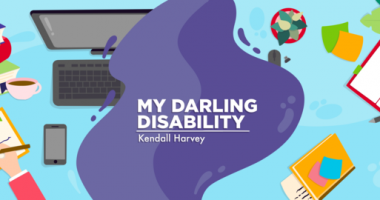Can joy and grief coexist? In my life, they do.
Living with Friedreich's ataxia, I sometimes feel conflicting emotions all at once

Before my Friedreich’s ataxia (FA) symptoms began, I was a healthy young adult with active hobbies, big plans, and an extroverted lifestyle. Now, after more than a decade with FA, I’ve seen so much change and many unexpected lessons.
Some obvious physical struggles come along with a progressively degenerative disability, but those problems have relatively simple solutions: get help from people or assistive devices or accept that certain tasks aren’t possible.
But those solutions aren’t really so simple. Physical limitations demand emotional adaptations, and that’s rarely a simple process.
I’m constantly battling grief in my relentless pursuit of contentment and joy. I’m warding off the pull of that grief no matter what’s going on around me or how consumed I am. I grieve for the life I had before FA, for the ways FA is affecting my present, and for the degree I foresee it affecting my future.
Over Thanksgiving break, for example, my family and I went on a fabulous trip to an all-inclusive resort in the Riviera Maya area of Mexico, where my husband, Kyle, and son, Brooks, spent hours playing beach volleyball pickup games with other vacationers. I’d played such games before FA took away my balance; my husband and I spent the first four years of our marriage participating in a weekly sand volleyball league here in Austin, Texas. Those nights were some of the best I’ve had.
But simply sitting, in my disabled and incapable body, while watching my boys play was simultaneously joyous and torturous.
Kyle’s smile while playing was contagious; I enjoyed watching him do something he loved. And I was enthralled, as always, to watch Brooks learn and master a new activity. I was wildly impressed. Yet that impossible-to-ignore part of my mind was screaming about how unfair it was that I had to just sit there, unable to join in on their fun.
Ten years ago, I would’ve been out there, too, having a blast and building core memories with my family. Now, instead of feeling only positive emotions as I watched something so organically wonderful, I was also left with grief because I couldn’t participate.
Living with coexisting emotions
That’s when I had an epiphany: It’s OK to feel both of those emotions. It’s OK to grieve the life that was taken from me while also feeling grateful for the life I have now. It’s OK to long for what I’d hoped for while also staying engaged in the here and now. It’s OK to love watching my family’s joy while also grieving my lost reality.
Although the feelings are opposites, neither has to dominate in an all-consuming way; they can swirl around and mix. Acknowledging one doesn’t diminish the other. After all, they’re both genuine reactions to my experience.
Yes, FA has undeniably brought sadness and complications to my life, but that doesn’t have to win out over my joy. Life is messy and complicated, and emotions can be, too. They don’t have to be either-or; they can be this and that.
I can reflect on the past with joy and pride and feel sad about the role FA has played in my experience. I can love my life and wish that FA wasn’t a part of it. I can eagerly anticipate my future and hope that FA won’t be a part of it. Life with FA, like grief, is a process; it’s taught me how to feel this and that all at once.
“I pray that God, the source of hope, will fill you completely with joy and peace because you trust in him. Then you will overflow with confident hope through the power of the Holy Spirit.” — Romans 15:13 (New Living Translation)
Note: Friedreich’s Ataxia News is strictly a news and information website about the disease. It does not provide medical advice, diagnosis, or treatment. This content is not intended to be a substitute for professional medical advice, diagnosis, or treatment. Always seek the advice of your physician or another qualified health provider with any questions you may have regarding a medical condition. Never disregard professional medical advice or delay in seeking it because of something you have read on this website. The opinions expressed in this column are not those of Friedreich’s Ataxia News or its parent company, Bionews, and are intended to spark discussion about issues pertaining to Friedreich’s ataxia.









Comments
Sharon Leath
Hi Kendall,
My precious daughter in law has FA. She just found out she's pregnant and I would love for us to be able to reach out to you and see how you have navigated some things.
Thanks,
Sharon